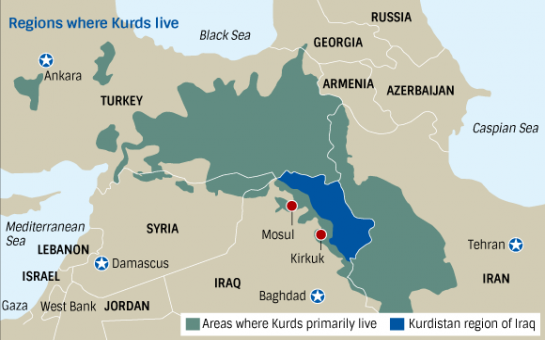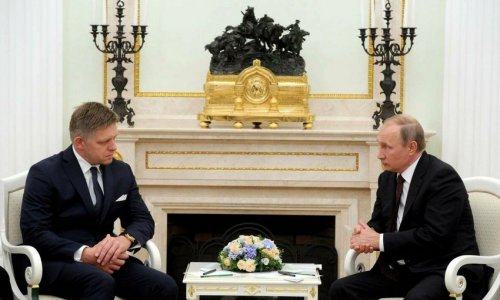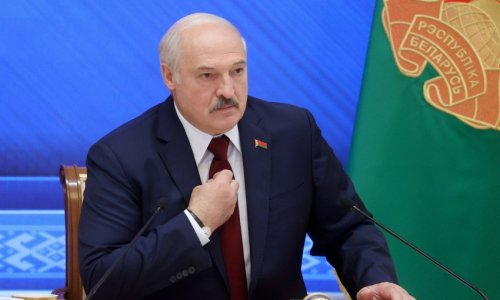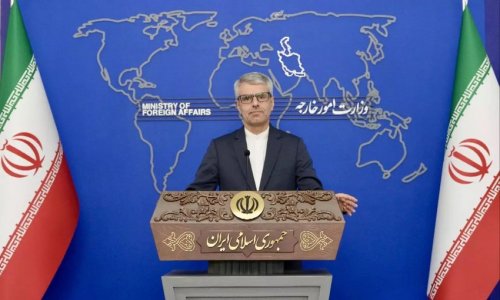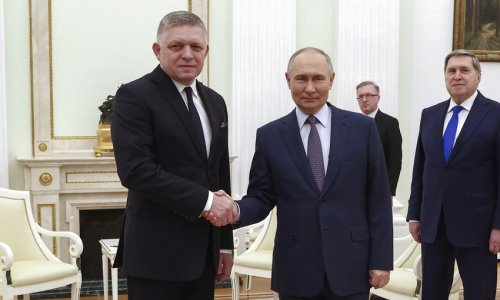It has been 100 years since the outbreak of World War I. Three powers -- Germany and the Austro-Hungarian and Ottoman empires -- eventually were defeated, and in the wake of the conflict, numerous nation-states were born. Syria, which is now gripped by civil war, and Iraq, which is fracturing, were once parts of the Ottoman Empire.
Pursuing the origins of today's problems in the Middle East, one discovers that many arose from the national borders drawn by Britain and France as a result of that war. Those borders were made without regard to the distribution of ethnic groups, tribes, religions or sects.The common feeling of belonging that constitutes national identity is forged through shared history. Even in the Middle East, many individuals share the experience of cheering on their teams in international soccer matches. On the other hand, when the makeup of ethnic groups and religions within a country is complex and overlaps, conflicts over the distribution of political leadership rights and economic benefits weakens the sense of national unity and divisions can grow.In Iraq, Sunni Muslims in the central part of the country have revolted against the political administration led by Shia, who account for 60% of the population and reside primarily in the south. Kurds in the north, meanwhile, have also strengthened their opposition to the central government. These waves of opposition have helped extremists gather strength.Sunni extremist forces that repeatedly carried out acts of terrorism within the country and have been involved in the Syrian civil war have taken control of some Iraqi cities, including Mosul. They have widened their zone of support, which straddles the two countries, and at the end of June proclaimed the establishment of the Islamic state. They emphasize the repudiation of national borders based on the Sykes-Picot Agreement of 1916 between Britain and France.SecrecyThe agreement, negotiated in secret, carved up the Ottoman Empire. Partially revised, it placed Syria and Lebanon within France's sphere of influence, and Iraq, Jordan and Palestine under British control. It became the foundation of the political map of today's Middle East.Following the collapse of the Ottoman Empire, which encompassed numerous ethnic groups, religions and religious sects, Turkey itself was reorganized into a "nation of Turkish people." But a nationality and an ethnic group are not the same thing. If people of Georgian descent or Albanian descent share a sense of belonging as Turkish people, they are Turkish. However, there was also an ethnic group that did not share this sense of nationality -- the Kurds, who missed the chance for independence and autonomy in the immediate aftermath of World War I.One Kurd who spoke to me came to Europe as a stowaway in the early 1990s and sought to be recognized as a refugee in Austria. However, no matter how many times he applied, he could not gain refugee status. The authorities wanted to know what country he came from. When he answered "Kurdistan," he was then told, "There is no such country; it is Turkey." His response was to tell them that they were wrong, and that he was from Kurdistan.For many years, Turkey propped up the image that it had no ethnic problems within its borders. It was only when the Welfare Party came to power in 1996, touting "ethnic coexistence within an Islamic collective," that a policy of reconciliation with the Kurds was promulgated. The Welfare Party was crushed by the military, but the Justice and Development Party (AKP), which was of the same essence, has held power since 2002 and has pursued a peaceful route with the Kurdish armed anti-government organization.Iraq and new landsThe biggest current issue regarding the situation of the Kurds is whether its regional government, which began self-rule in three provinces of northern Iraq under the protection of the U.S. following the Gulf War, is heading toward independence as the Iraqi state fractures.The regional government has seized the Kirkuk oil fields, which it asserts are part of the Kurdish region, despite being outside the zone of self-rule. Masoud Barzani, president of the region, has even said he will hold a public referendum on the question of independence. The problem is whether the region can become economically self-sufficient.Iraq's Kurdistan region is heavily dependent on Turkey economically, relying on it to supply electricity and improve infrastructure. Crude oil produced within the region and transportation routes all run through Turkey. Over the border, voices have emerged saying that an independent state contained within Iraq's national borders could be recognized.However, the U.S. government, which has stressed that a unified Iraq should be maintained, is seeking cooperation to create a national unity government. At the present time, the Kurdistan Regional Government has two aims -- to secure its interests within Iraq and to strengthen the economic foundations needed to become independent.What has led to the fracturing of Iraq? Following the collapse of the Saddam Hussein government, which has primarily composed of minority Sunnis, the majority of political power went to Shias after elections. In response, "forces that understand they cannot win through elections have the incentive to overthrow the structure through different forces," University of Tokyo Associate Professor Satoshi Ikeuchi explained.There has also been a backlash against Prime Minister Nouri al-Maliki, who has been criticized for becoming dictatorial. Some Sunni tribes have begun cooperating with the extremists, who have managed to quickly gain control of a broad swathe of Iraqi land. Such Sunni tribes also reside in Syria, and are cooperating with forces seeking to overthrow the Bashar Assad government. Political power in Syria lies with the Alawis, who are close to the Shias. Such a complicated regional and ethnic makeup means extremists in the area are operating in a way that transcends national borders.In the Gaza Strip, which has no prospects for independence, the human cost of the Israeli military onslaught is growing. Regarding the latest clashes and delays in implementing a cease-fire, Arab nations have censured Israel while simultaneously criticizing Hamas, the fundamentalist organization that is the de facto ruler of Gaza. They are giving priority to restoring peace and order in the region while seeking flexibility from Hamas.Merely underscoring the inconsistency of the order imposed by the U.S. and Europe will not resolve the current upheaval. The idea of Iraq transitioning to a federal system has been discussed. But with an intermixture of ethnic groups and religions that differs from a century ago, there is also a risk that strengthening the independence of the Sunni region could lead to the oppression of the Shia minority living there.Regardless, what is important now is to create a broad agreement for avoiding any further upheaval.(asia.nikkei.com)Bakudaily.az
Follow us !

